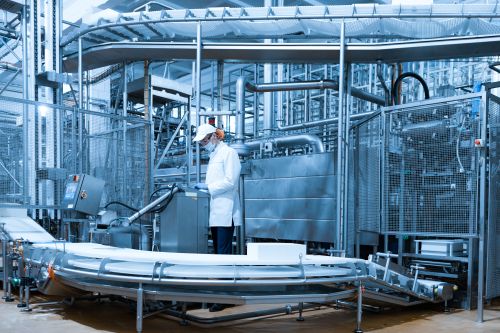1803

Romania’s meat industry stands at a strategic crossroads. Despite its strong livestock resources and modern slaughtering facilities, the added value created domestically remains low. Most production is directed to the internal market as raw or semi-processed meat, while premium segments—advanced processing, specialty products, and ready-to-eat items—are dominated by imports.
According to Eurostat, Romania exports meat products worth approximately €180 million annually, but imports finished goods exceeding €600 million. This imbalance highlights the lack of integrated processing chains and insufficient investment in high–value-added products such as specialty cold cuts, ready-to-eat meals, clean-label products, and dry-aged meat.
The FAO reports that, globally, advanced processing can increase a facility’s profitability by 35–40%, thanks to extended shelf life, reduced waste, and portfolio diversification. Across Europe, industries that have adopted integrated processing models—such as Poland or Denmark—have managed to double their exports in less than a decade.
According to the European Commission, the new “Agri-Food Innovation 2030” framework includes funding lines dedicated to innovation in processing, biotechnology, and cold-chain logistics. Romania can tap into these resources to modernize its infrastructure and develop competitive, ESG-aligned products.
The Ministry of Agriculture and Rural Development (MADR), through the National Strategic Plan (PNS) 2023–2027, already supports investments in processing and cold-storage units. However, implementation remains slow, and the lack of partnerships between farms, processors, and retailers continues to hinder the creation of an efficient ecosystem.
A World Bank study indicates that integrating the processing chain—from farm to finished product—could raise the added value per ton of meat from €300 to over €700. Moreover, Romanian finished products could gain access to foreign markets under a strong national brand, built on quality and traceability.
Advanced processing is not merely an industrial trend—it is an economic necessity. Romania can no longer afford to remain an exporter of raw materials and an importer of finished products. The future of the meat industry depends on its ability to transform every kilogram of raw material into a valuable, safe, and competitive product on the European market.
(Photo: Freepik)





